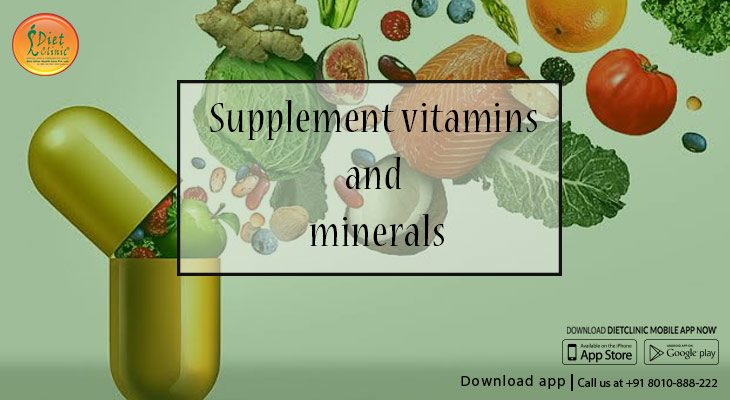
Dietician Sheela Seharawat
Vitamins and minerals are essential for proper functioning of the body, and their deficiency can lead to various health problems. Daily vitamin and mineral needs change with age and many other factors.
Daily requirements for vitamins and minerals are known to scientists and are referred to as the Recommended Nutrient Intake (RDA). Vitamins and minerals are considered essential nutrients because, by acting together, they perform hundreds of functions in the body. They help strengthen bones, heal wounds and strengthen your immune system. They also convert food into energy and repair cell damage. Dietitian Sheela Sherawat founder of Diet Clinic describes the importance of vitamins and minerals in our diet.
Vitamins, the backbone of a healthy body
Vitamins are important for the growth and proper functioning of the body. They are of two types: water-soluble vitamins and fat-soluble vitamins. Water-soluble vitamins, such as vitamin C, dissolve in water. The excess of water-soluble vitamin is eliminated through the urine. It is therefore necessary to integrate them into your daily diet as your body can not keep them in reserve. On the other hand, fat-soluble vitamins such as vitamin D are absorbed and stored in fats. The human body needs thirteen essential vitamins to function. These are vitamins A, C, D, E and K and the eight B vitamins.
Each vitamin has its own functions in your body. The transformation of food into energy, the maintenance of cell health and the support of the immune system are some examples. Vitamins are involved in many biological processes necessary for life and health.
Vitamins are found in many foods, including vegetables, fruits, eggs, nuts and dairy products.
Minerals, essential for bodily functions
Just like vitamins, minerals need to be consumed in sufficient quantities for your body to function well. They participate in many chemical reactions and occupy vital roles in the human body.
Among the minerals we find -
Calcium: It is essential for maintaining good bone health.
Iron: It is responsible for transporting oxygen to our cells.
Magnesium: It helps to strengthen bones and teeth and ensures the proper functioning of the heart and muscles.
Phosphorus: It is essential for energy and calcium metabolism and helps in the formation of bones and teeth.
Zinc: It is a constituent of several enzymes and is necessary for the growth and proper functioning of the immune system.










